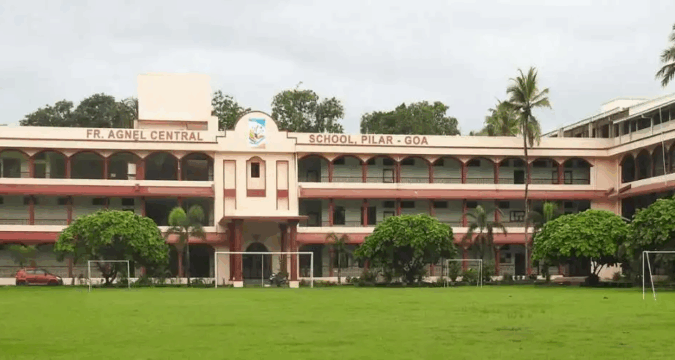
GOA (UCAN): A top court in the state of Goa, India, upheld the right of the Archdiocese of Goa and Daman to administer its schools, as guaranteed by the rights enshrined in the Indian Constitution.
The Goa bench of the Mumbai High Court delivered the order on October 3, made public on October 8, while hearing a petition filed by the Diocesan Society of Education [DSE], the educational arm of the archdiocese.
The DSE challenged directives issued in 2024 by the Goa Directorate of Education, requiring staff appointment orders in diocesan schools be authorized by the government agency, rather than by the DSE chairperson.
The DSE, being a minority, “is not bound to follow the procedure prescribed” in the directives, the bench of Justices Bharati Dangre and Nivedita Mehta stated.
The Indian Constitution guarantees the rights of religious and linguistic minorities to manage and administer institutions for the benefit of their people. That right “imposes no such limits or restraints, except to ensure quality education,” the court said.
The Archdiocese of Goa and Daman, which operates 138 primary to higher secondary schools, contested the directive, arguing that it curtails the archdiocese’s autonomy in managing its schools.
The Indian Constitution guarantees the rights of religious and linguistic minorities to manage and administer institutions for the benefit of their people
The court quashed the education department’s directive and revived DSE’s autonomy to make appointments, initiate disciplinary proceedings, and exercise administrative control over its schools.
The state holds the power to prescribe teacher qualifications and maintain educational standards.
Father Jesus Rodrigues, the secretary of the DSE, welcomed the court order as a great relief. “Our fundamental right to manage and administer our schools has been upheld,” he said on October 9.
Senior advocate, J.E. Coelho Pereira, who represented the DSE, said the court reaffirmed minority rights upheld earlier by the Supreme Court of India.
“The education department had unnecessarily trampled upon the rights of minorities to manage their schools,” he said on October 9.
The DSE had also challenged specific education department rules which it said curtailed its autonomy in running the schools.
State prosecutor, Devidas Pangam, told the court that the education rules aim to ensure compliance with statutory requirements and do not infringe on the rights of minorities.
The court ruled that while minority institutions are subject to reasonable regulatory measures to maintain educational standards, the regulations cannot tamper with their essential right to manage their own affairs.
The court said the constitutional right to the “management” of an institution rests with the DSE that establishes and runs the schools.
The state agency’s insistence on management of staff was inconsistent with minority rights.



